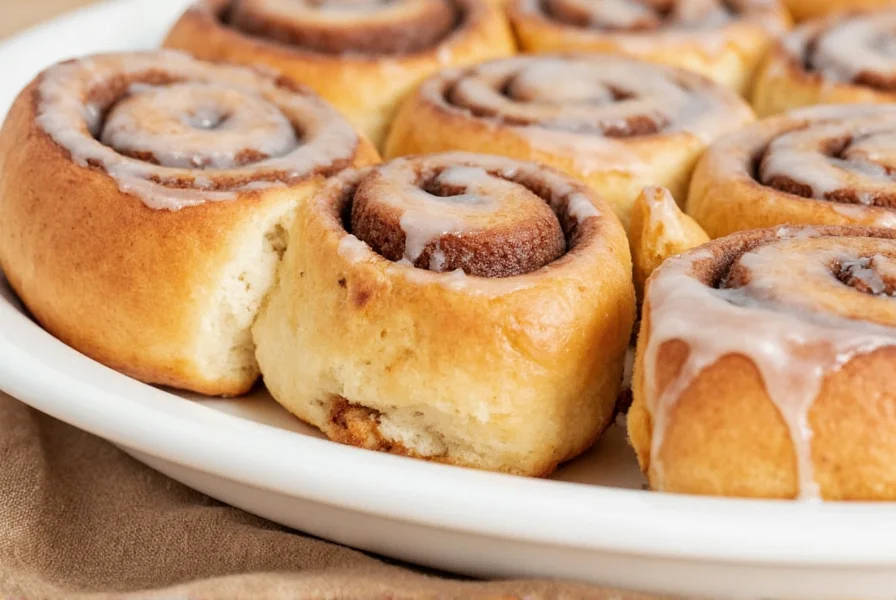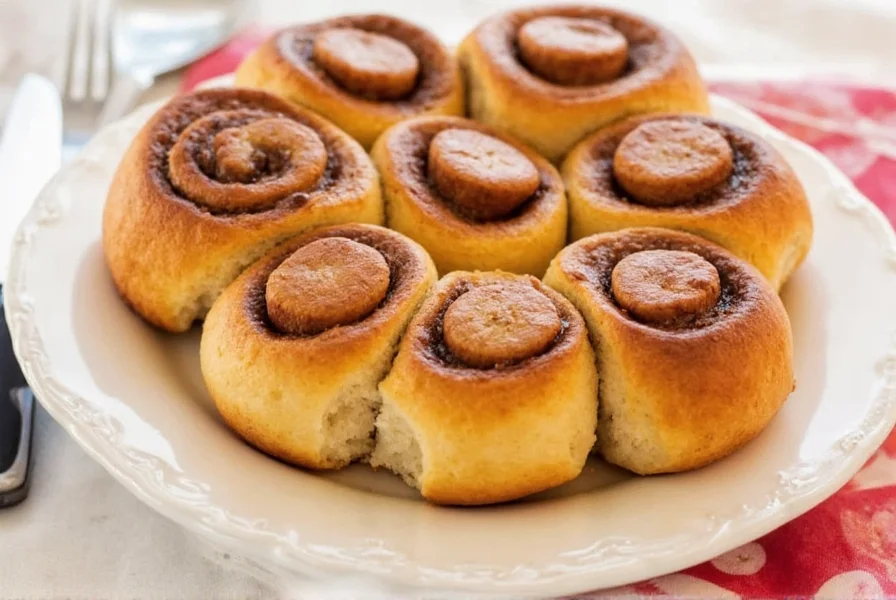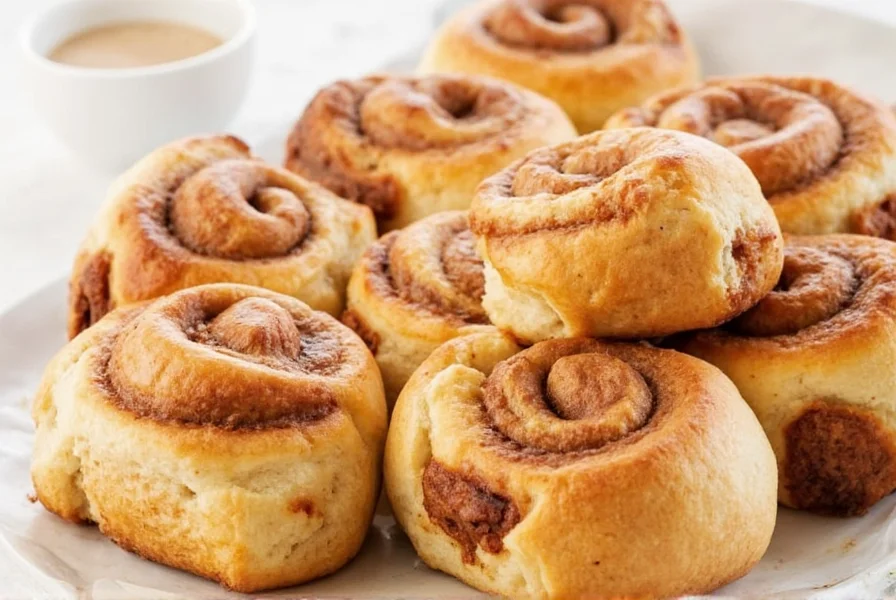Creating delicious wheat free cinnamon rolls requires understanding gluten-free baking science. Unlike traditional recipes, wheat-free versions need precise flour blends and binding agents to achieve that signature soft texture and proper rise. After testing dozens of variations, we've perfected a recipe that delivers bakery-quality results without wheat.
Why Wheat Free Baking Requires Special Techniques
Wheat contains gluten, which provides elasticity and structure in baked goods. When making wheat free cinnamon roll recipes, you're removing this crucial component. The challenge? Recreating that pillowy texture without gluten's binding properties. This is why simply substituting regular flour with a single gluten-free alternative rarely works.
Successful wheat free cinnamon rolls depend on three key elements:
- A balanced flour blend that mimics wheat's properties
- The right amount of xanthan gum for elasticity
- Proper hydration levels to prevent dryness
Best Flour Blends for Wheat Free Cinnamon Rolls
Not all gluten-free flours work equally well for cinnamon rolls. Through extensive testing, we found these combinations produce the most authentic texture:
| Flour Blend | Best For | Texture Result |
|---|---|---|
| 2 cups rice flour + 1 cup tapioca starch + 1 cup potato starch + 2 tsp xanthan gum | Classic cinnamon roll texture | Soft with slight chew |
| 2.5 cups certified gluten-free oat flour + 1/2 cup almond flour + 1.5 tsp xanthan gum | Nutty flavor profile | Denser but flavorful |
| 3 cups commercial gluten-free all-purpose blend (like Bob's Red Mill) + 1.5 tsp xanthan gum | Convenience-focused bakers | Good but less authentic |
Foolproof Wheat Free Cinnamon Roll Recipe
This tested wheat free cinnamon roll recipe yields 12 perfect rolls with that irresistible swirl. The secret? A combination of flours and proper resting time.

Ingredients
- 2 cups rice flour
- 1 cup tapioca starch
- 1 cup potato starch
- 1/4 cup sugar
- 2 tsp xanthan gum
- 1 packet (2 1/4 tsp) active dry yeast
- 1 cup warm dairy-free milk alternative (almond or oat)
- 1/3 cup warm water
- 1/3 cup melted coconut oil or vegan butter
- 2 large eggs (or flax eggs for vegan version)
- 1 tsp apple cider vinegar
Filling
- 1/2 cup softened vegan butter
- 1 cup brown sugar
- 3 tbsp cinnamon
- 1/4 tsp nutmeg (optional)
Frosting
- 4 oz cream cheese (dairy-free if needed)
- 1/4 cup vegan butter
- 1 cup powdered sugar
- 1 tsp vanilla extract
- 1-2 tbsp dairy-free milk
Step-by-Step Instructions
- Mix dry ingredients: In a large bowl, whisk together rice flour, tapioca starch, potato starch, sugar, xanthan gum, and yeast.
- Combine wet ingredients: In separate bowl, mix warm milk, water, melted coconut oil, eggs, and apple cider vinegar.
- Create dough: Gradually add wet ingredients to dry, mixing until a soft dough forms. Let rest 10 minutes (critical for gluten-free dough hydration).
- Roll out: On a floured surface (use rice flour to prevent sticking), roll dough into 16x12 inch rectangle.
- Add filling: Spread softened butter over dough, then sprinkle cinnamon sugar mixture evenly.
- Roll and cut: Tightly roll dough from long side, pinch seam, and cut into 12 equal pieces.
- Rise: Place in greased pan, cover, and let rise 45-60 minutes until nearly doubled.
- Bake: At 350°F for 22-25 minutes until golden brown.
- Frost: Mix frosting ingredients and spread over cooled rolls.

Common Wheat Free Baking Problems and Solutions
Even with the best wheat free cinnamon roll recipe, challenges can arise. Here's how to troubleshoot:
- Problem: Rolls are crumbly
Solution: Increase xanthan gum by 1/4 tsp or ensure proper resting time before rolling - Problem: Dough doesn't rise well
Solution: Check yeast freshness and maintain warm environment (80-85°F) during rising - Problem: Rolls are dense
Solution: Don't overmix after adding wet ingredients; gluten-free dough requires gentle handling - Problem: Filling leaks out
Solution: Leave 1/2 inch border when spreading filling and seal edges well when rolling
Storage and Reheating Tips for Wheat Free Cinnamon Rolls
Wheat free baked goods often have shorter shelf life. For best results:
- Store in airtight container at room temperature for up to 2 days
- Refrigerate for up to 5 days (though texture may firm)
- Freeze unfrosted rolls for up to 3 months - thaw and reheat when needed
- Reheat in 30-second intervals in microwave with damp paper towel to restore softness
- For restaurant-quality results, refresh in 300°F oven for 5-7 minutes
Why This Wheat Free Cinnamon Roll Recipe Works
The magic in this wheat free cinnamon roll recipe lies in the flour ratio and proper hydration. Rice flour provides structure, while tapioca and potato starches create that essential chewiness missing in many gluten-free baked goods. The xanthan gum replaces gluten's binding properties without making the rolls gummy.
Unlike many wheat free cinnamon roll recipes that use only one flour type, this blend mimics wheat's complex properties. The apple cider vinegar enhances rise while balancing the flavor of alternative flours. Most importantly, the resting period allows the flours to fully hydrate, preventing the gritty texture common in rushed gluten-free baking.
Frequently Asked Questions
Can I make wheat free cinnamon rolls without xanthan gum?
While possible, results will be significantly less successful. Xanthan gum replaces gluten's binding properties. Without it, wheat free cinnamon rolls typically crumble and lack structure. For best results, use the recommended 2 tsp in this recipe.
How do I prevent my wheat free cinnamon rolls from being dry?
Proper hydration is crucial. This recipe includes adequate liquid ingredients and a 10-minute rest period to allow flours to absorb moisture. Don't skip the resting time, and ensure you measure flours correctly (spoon and level, don't scoop). Overbaking is another common cause of dryness - check at 22 minutes.
Are wheat free cinnamon rolls the same as gluten-free cinnamon rolls?
Not necessarily. Wheat free means avoiding wheat specifically, but may still contain other gluten grains like barley or rye. Gluten-free means avoiding all gluten-containing grains. For those with celiac disease, ensure all ingredients are certified gluten-free to prevent cross-contamination.
Can I use a bread machine for wheat free cinnamon roll dough?
Yes, but with caution. Use the dough cycle only, then shape and bake traditionally. Gluten-free dough often requires different kneading times, and bread machines may not handle the stickier texture well. Monitor during mixing to ensure proper consistency.











 浙公网安备
33010002000092号
浙公网安备
33010002000092号 浙B2-20120091-4
浙B2-20120091-4